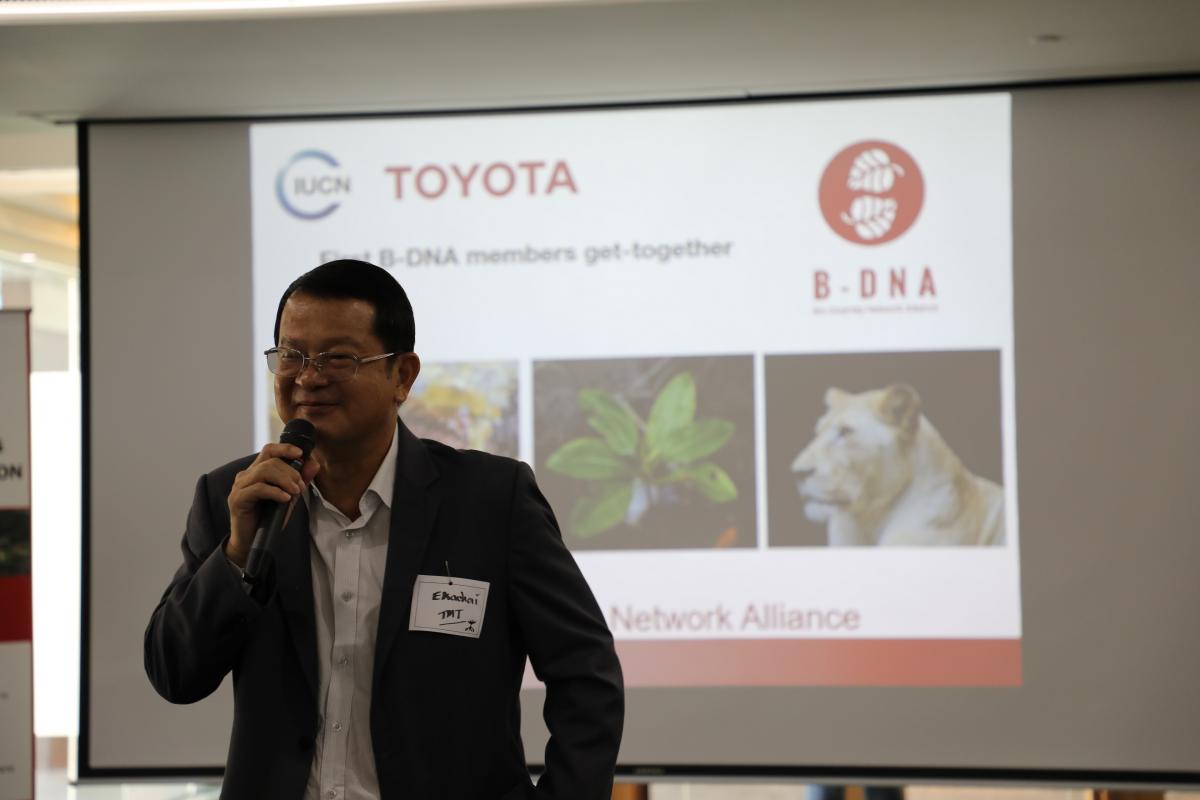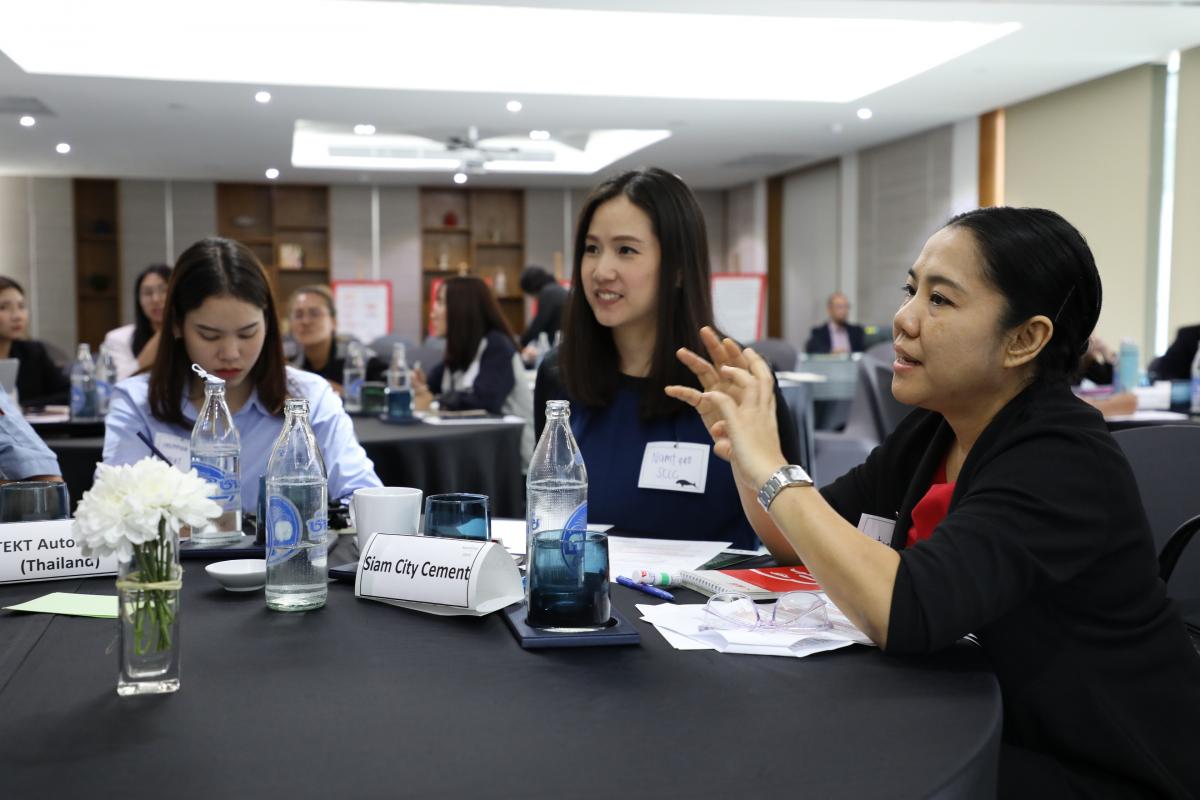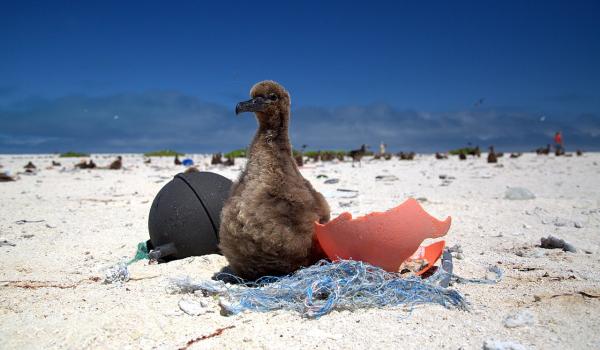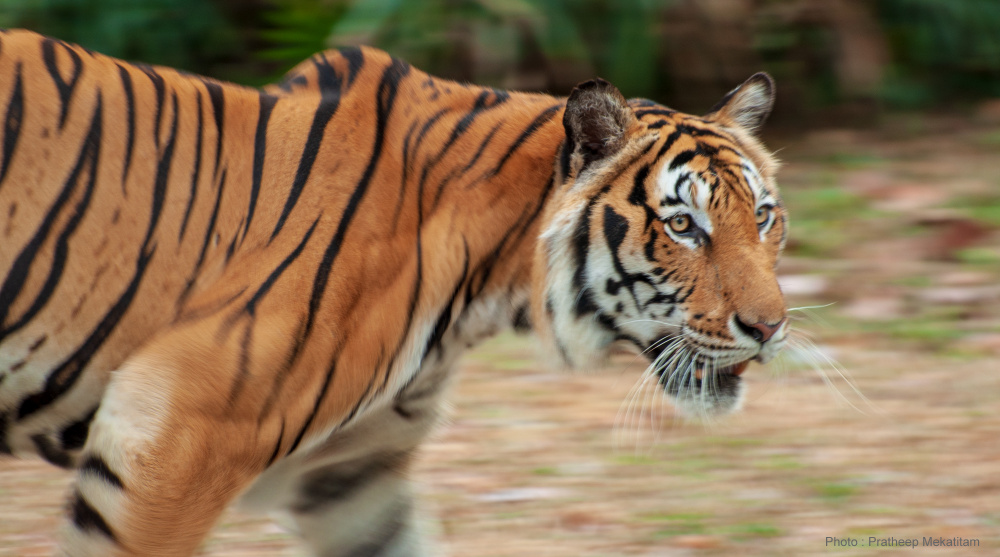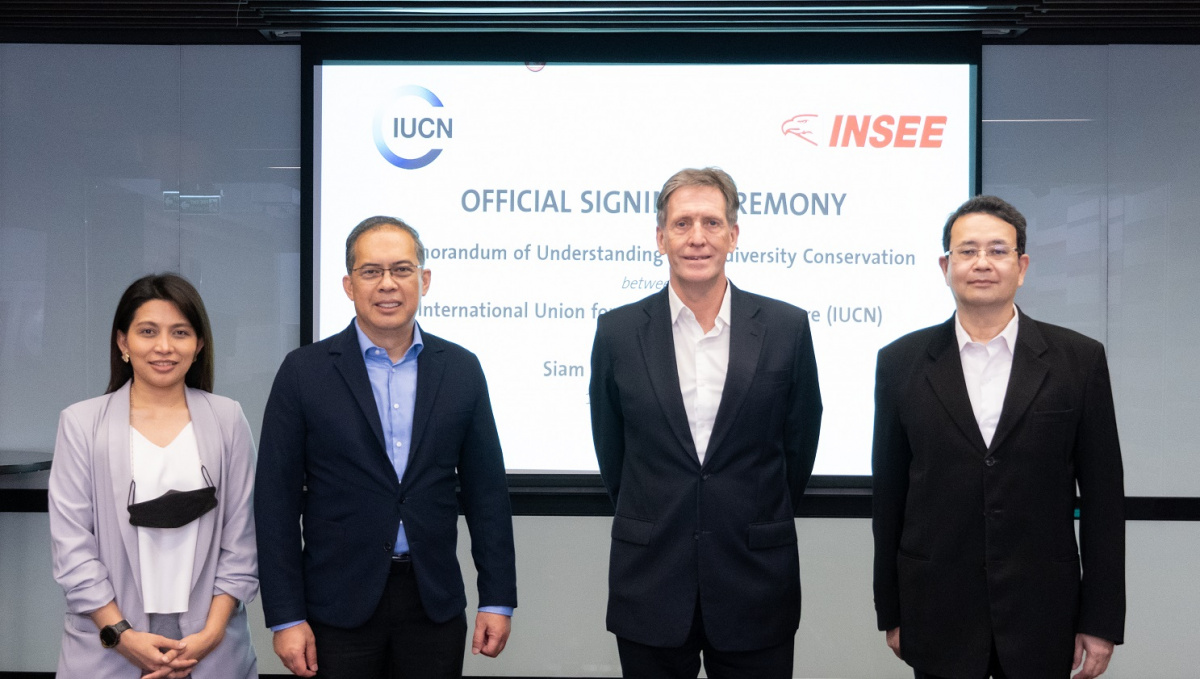Securing Thailand’s future: Business and biodiversity platform explores opportunities for collaboration
After a successful coastal cleanup to raise awareness about marine plastic pollution in July, the Thailand Bio-Diversity Network Alliance (B-DNA) organised its first members’ get-together and workshop on 17 October.
The meeting gave members the opportunity to get to know one another better, as well as to share information and best practices about existing conservation efforts. The meeting also provided a space for members to discuss the potential of collaborating on environmental initiatives.
‘’Thailand B-DNA was established to empower private sector to conserve biodiversity. If all B-DNA members work together, Thailand’s biodiversity will once again thrive,’’ said Ekachai Chaisiriphan, Senior Vice President, Toyota Motor Thailand.
Through various presentations and interactive sessions, participants were exposed to a wide range of topics related to business and biodiversity and Thailand B-DNA.
To kick-off the meeting, Ann Moey, Head of Communications and Private Sector Focal Point for IUCN Asia, gave attendees an overview of sustainability in the business context and explained the importance of incorporating social, environmental and economic considerations into core business operations.
Helene Marre, Private Sector Engagement Officer for IUCN Asia, then introduced the importance of protecting biodiversity and presented an overview of Thailand B-DNA, including its achievements to date.
Siriporn Sriaram, Programme Officer, IUCN Thailand presented the key results and lessons learned of the coastal cleanup that took place in July in Bang Pu, Samut Prakarn, and invited B-DNA members to provide feedback about the activity.
'' I believe that the coastal cleanup was important as it highlighted that the waste collected in Bang Pu was not just generated by the local community, but by people like us, from all over Thailand. Unfortunately, coastal communities are the most vulnerable to marine plastic pollution,” said Pratat Sutaputra, Associate Commercial Excellence Director, Dow Chemical Thailand Ltd. “If we do not segregate waste at source, be it at the company or household level, we are part of the problem. We must convince people that they can take part in addressing this problem. If waste is sorted at source, more plastics will be recycled and the recycling process will be easier.”
The results of a recent B-DNA members’ survey were also shared with participants. Key results included a strong interest in capacity building sessions and networking opportunities, as well as access to knowledge, tools and best practices through the Thailand B-DNA platform.
The survey also highlighted that members were keen on implementing collaborative CSR projects focusing on waste management, habitat restoration and biodiversity protection. These survey results will feed into the platform’s workplan for 2020, upon approval by the advisory committee and the steering committee.
In the afternoon, Watsachai Sittibutsaya, General Manager, Toyota Motor Thailand, presented the company’s biodiversity conservation efforts as part of Toyota’s 2050 Environmental Challenge.
“We are very grateful to see that many companies in Thailand are ready to embrace sustainability and work together to conserve ad protect nature in Thailand. This first get-together was indeed an important milestone for the platform,” said Ann Moey.
Thailand Bio-Diversity Network Alliance (B-DNA) is the country’s first and only Business and Biodiversity platform. The overall goal of the B-DNA platform is to strengthen the private sector’s role in nature conservation in Thailand, with a focus on biodiversity and contributing to achieving the Sustainable Development Goals and Aichi Biodiversity Targets. It encourages companies to include plastic pollution and sustainable development measures within their business operations. To date, Thailand B-DNA has 15 member-companies.

